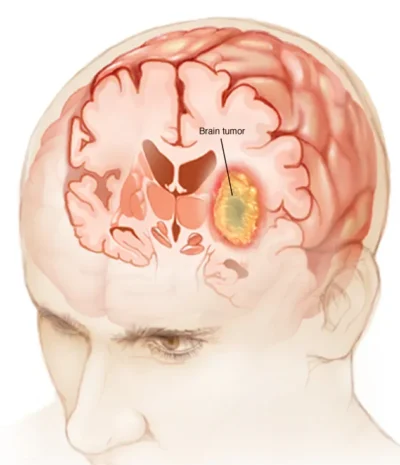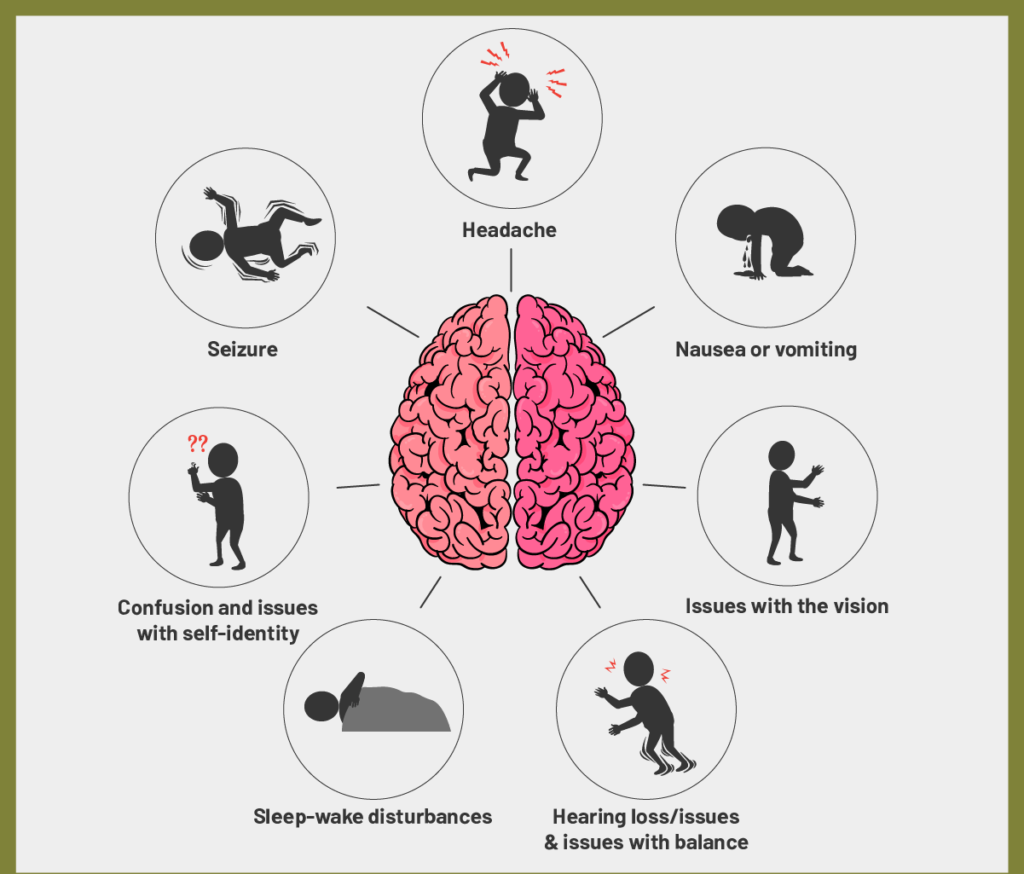Brain Tumor
Brain Tumor can be dangerous and we all know about this. As Doctors always advice the timely checkup of the body so that if any issue is found in the body then it can be prevented in the very initial stage and we should take the advice of Doctor as health is our prior responsibility.
A brain tumor is an abnormal and uncontrolled growth of cells within the brain. These growths can be benign (non-cancerous) or malignant (cancerous) and may originate within the brain (primary brain tumors) or spread to the brain from other parts of the body (secondary or metastatic brain tumors). Brain tumors can vary widely in their size, location, and aggressiveness, and they can have a significant impact on an individual’s health and well-being.
Types of Brain Tumors
Brain tumors can be categorized based on their origin, whether benign or malignant, and the specific cells they affect. The main types include:

- Gliomas: These tumors originate from the glial cells, which are the supportive cells of the brain. Gliomas include astrocytomas, oligodendrogliomas, and ependymomas.
- Meningiomas: These tumors develop in the meninges, the protective membranes that cover the brain and spinal cord. Meningiomas are usually benign.
- Neuromas: Also known as vestibular schwannomas, these benign tumors develop on the cranial nerves, often affecting hearing and balance.
- Medulloblastomas: These are fast-growing tumors that primarily affect children and are located in the posterior fossa of the brain.
- Metastatic Brain Tumors: These are tumors that have spread to the brain from other parts of the body, such as the lungs, breasts, or skin.
- Pituitary Tumors: These benign tumors originate from the pituitary gland at the base of the brain and can disrupt hormone regulation.
Causes and Risk Factors
The exact causes of brain tumors are often unclear. However, there are several risk factors that have been associated with an increased likelihood of developing brain tumors, including exposure to ionizing radiation, family history of brain tumors, certain genetic syndromes, and certain environmental factors.
Symptoms
The symptoms of brain tumors can vary widely depending on their size, location, and rate of growth. Common symptoms include:
- Headaches
- Seizures
- Changes in vision, hearing, or speech
- Weakness or numbness in the limbs
- Memory and cognitive problems
- Personality changes
- Balance and coordination issues
- Nausea and vomiting

Diagnosis
Diagnosing a brain tumor typically involves a combination of medical history review, physical and neurological examinations, and imaging tests such as MRI or CT scans. A biopsy may be performed to determine the tumor type. The final diagnosis will guide the treatment plan.
Treatment Options
The treatment for brain tumors depends on factors like the type, size, location, and grade of the tumor, as well as the individual’s overall health. Brain Tumor Treatment options include:
- Surgery: In many cases, surgery is performed to remove as much of the tumor as possible without causing neurological damage. It is often the first step in treatment.
- Radiation Therapy: This may be used to kill remaining tumor cells after surgery or as the primary treatment for tumors that cannot be surgically removed.
- Chemotherapy: It involves using drugs to destroy cancer cells and can be administered orally or intravenously.
- Targeted Therapy: This treatment option targets specific molecules involved in the growth and spread of cancer cells.
- Immunotherapy: This emerging field uses the patient’s immune system to fight cancer cells.
- Supportive Care: Patients may also require supportive therapies to manage symptoms and improve their overall quality of life.
Prognosis and Impact
The prognosis for brain tumor patients varies widely. Benign tumors often have a good prognosis, especially if they can be completely removed surgically. Malignant tumors are generally associated with a more guarded prognosis, and the impact on an individual’s life can be significant.
The psychological and emotional impact of a brain tumor diagnosis on patients and their families cannot be overstated. Coping with the uncertainty, treatment side effects, and potential lifestyle changes can be challenging.
The early checkup and diagnosis with early treatment is necessary for the case of Brain Tumor. We must take care and realize if any part of our body is not acting normal.

